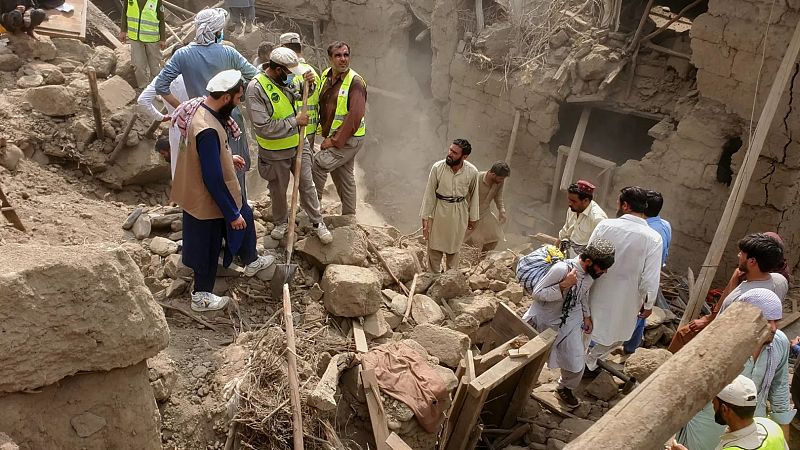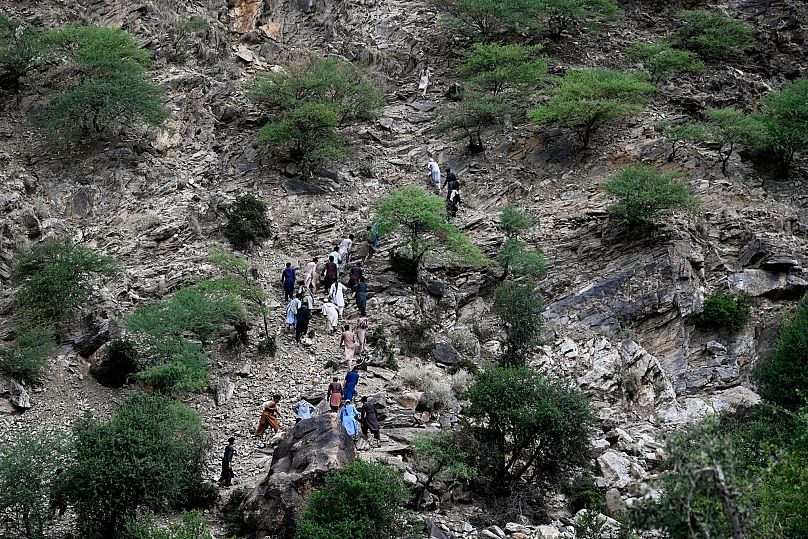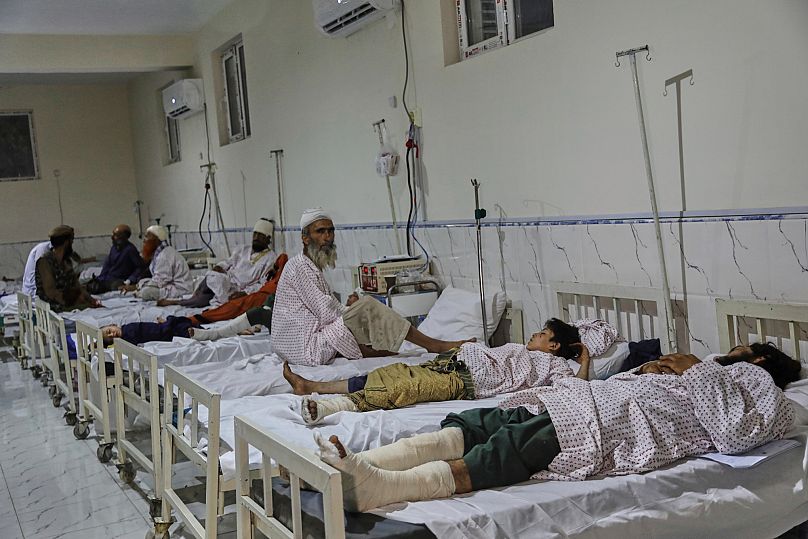UN issues emergency funding appeal to help survivors of devastating Afghan earthquake

The United Nations is issuing an emergency appeal for nearly $140 million (€119 million) in desperately needed funding to help nearly half a million people affected by the devastating earthquake that struck eastern Afghanistan.
Afghan authorities have said the 6.0 magnitude quake on 31 August and the ensuing aftershocks killed more than 2,200 people in the country’s mountainous and rugged east.
Many of the most severely affected areas have been particularly difficult to get to, with some reachable only by helicopter.
The UN said in a statement on Tuesday that the $139.6 million, four-month emergency response plan would allow humanitarian organisations to help the 457,000 people who have been affected in the provinces of Kunar, Laghman and Nangarhar.
Rescue operations concluded on Tuesday, with the official death toll at 2,210 across all three provinces, said Naqib Rahemi, the health department spokesperson from Nangarhar province.
More than 3,600 people have been injured, with stretched health facilities struggling to provide treatment, while more than 6,700 homes have been damaged or destroyed.
The UN has said it has so far been able to visit only 49 of the 411 villages affected due to damaged roads in the rugged terrain.
"This is a moment where the international community must dig deep and show solidarity with a population that has already endured so much suffering," the UN's Humanitarian Coordinator for Afghanistan, Indrika Ratwatte, said in a statement.
The approaching winter means assistance efforts are in a "race against time," Ratwatte added.
Local authorities and humanitarian organisations have been conducting relief operations to provide food, shelter and medical care.
The UN's earthquake response plan, which will run to the end of the year, will allow aid groups to increase operations particularly in high-elevation areas ahead of winter, the UN statement said.
The UN appeal comes almost a week after aid agencies working in the worst affected areas of Afghanistan called on the international community to increase funding.
So far, only a handful of countries have committed money to help aid efforts after the disaster.
The European Union has donated €1 million in humanitarian funding and 130 tonnes of in-kind assistance to address the needs of those impacted. The United Kingdom has also given £1 million (€1.15 million) to help.
That aid was due to be given directly to organisations working on the ground and not to the Taliban government, which most Western countries do not recognise.
Today



